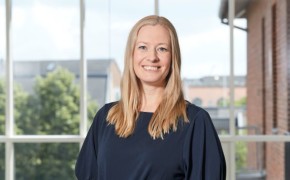Public decarbonisation challenges act as drivers for innovation and economic growth as they incite SMEs to develop cutting-edge green solutions.
In order to create a new methodology for establishing innovative, international public-private partnerships, Aalborg Municipality joined four other municipalities to explore how public authorities can drive the green agenda forward.
In the living lab methodology, each municipality presented a concrete decarbonisation challenge and through international open-innovation partnerships, green SMEs and municipalities came together to evaluate existing models and explore new ideas to meet the challenges posed.
Both public authorities and SMEs have benefitted from the living lab methodology. By challenging SMEs to come up with new sustainable solutions, Aalborg Municipality showed the immense sustainable and economic potential in having public authorities push the green agenda forward. By encouraging international cooperation, the living lab methodology have been successful in creating real-life, innovative solutions to a number of concrete challenges to the green transition:
In the Netherlands the methodology was applied to transition their district heating system in Alkmaar. By using surplus heat and waste incineration, the city was able to phase-out natural gas thus giving a great reduction in their CO2 emissions. In Scotland, the methodology was applied in a CCUS workshop, which resulted in several international collaboration projects being established. The potential of carbon capture in one of these projects (Grangemouth) could be as high as 1 million tons in 2027.
Resources needed
The methodology of the living lab challenge model is generic to fit all thematic challenges. A typical challenge with 100 participants requires:
- 2 FTEs for 3 months (incl. preparation, facilitation and evaluation).
- 12,000-15,000 € for venue, facilitation, matchmaking tools and software, etc.
Evidence of success
The methodology of the living lab challenges has proven highly successful. The challenges have showcased the large potential of public authorities in pushing the green agenda forward by encouraging SMEs to develop innovative sustainable solutions. +300 new collaborations were established among approx. 1000 participants (of which 315 was SMEs) through 354 prebooked meetings, which resulted in 111 pitches presenting innovative green solutions.
Potential for learning or transfer
The methodology is developed and tested, which ensures a uniform process that can easily be transferred onto forthcoming living lab challenges in any country within any thematic area.
The methodology has shown great potential in creating innovative procurement processes in which municipalities can demand a higher green aspect than before.
By applying the living lab methodology, Aalborg Municipality has successfully provided incentives for several SMEs to push green innovation and can now formulate procurement processes with a much higher green focus than before.
With its fixed methodology, the practice can provide a ‘plug-and-play' inspiration to other local, regional and national agencies throughout Europe.
Please login to see the expert opinion of this good practice.
Tags: Buildings, Business, Case study, Challenges, City, Cooperation, Energy efficiency, Innovation, Private sector, Procurement, Public expenditure, SME








